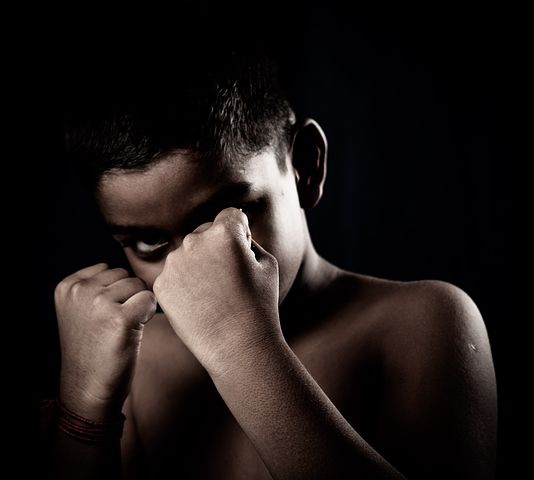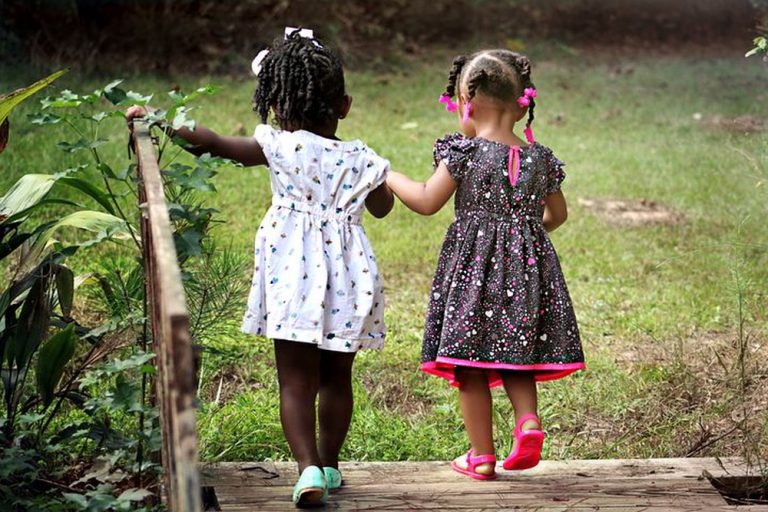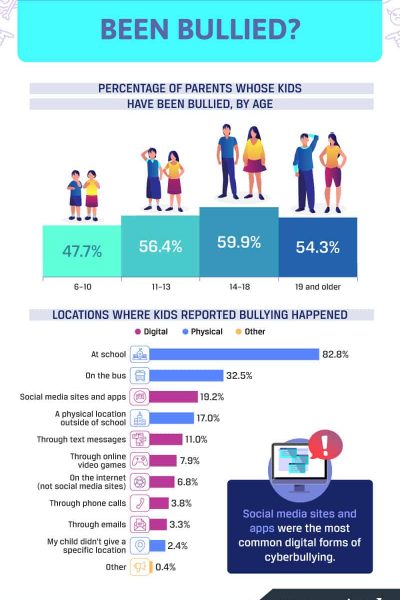When does bullying begin? No need to ponder no more.


By Antoine G Larosiliere
With bullying being such a global issue that affects all our lives, it’s easy to find yourself thinking, when does bullying begin.
As parents, it’s important for us to anticipate potential hazards for our children. With that being said, I can understand why a parent would be curious about knowing, when does bullying begin. I too at times have been curious as well, so I decided to do a little research. What I found out did alleviate whatever concerns or curiosity I had, and it should do the same for you. Although it’s possible for bullying to begin as early as the preschool years, psychologists say true bullying starts at age seven or eight; when kids start understanding the meaning of power. It begins in the home, where these seven and eight year olds learn it from bad parenting, sibling relationships, inappropriate television programs, and violent video games.
“Bullying is unwanted, aggressive, repeated or with the potential to repeat behavior that involves an imbalance of power.”
What are we referring to when we say “bullying?
According to The National Center Against Bullying, bullying is an ongoing and deliberate misuse of power in relationships through repeated verbal, physical and/or social behaviour that intends to cause physical, social and/or psychological harm. It can involve an individual or a group misusing their power, or perceived power, over one or more persons who feel unable to stop it from happening.The more succinct definition that I like to use with my students is, bullying is unwanted, aggressive, repeated or with the potential to repeat behavior that involves an imbalance of power.

The earlier it begins, the more damaging it can become.
Just in case you’ve been under a rock most of your life, bullying is a problem amongst every age group, especially in our youngest. Research has shown that up to 35% of people are estimated to have experienced childhood bullying at some point.
Matter of fact, in a 2014 study, physical intimidation was most commonly reported by children under 10 years. In another research focusing on children who were 8 years old and bullied frequently, these subjects were more likely to develop a psychiatric disorder that needed treatment as an adult, compared to kids who were not bullied. Some of these long lasting damages include…
- More severe anxiety symptoms
- Personality disorders
- Post Traumatic Stress Disorders (PTSD)
- Low self-esteem
- Physical Health problems
- Trust Issues
Does bullying begin in Grammar School?
The answer is, yes! Kids start bullying at the developmental age where they start realizing what control is and how it influences others. According to clinical psychologist Dr. Joel Haber “True bullying starts at age seven or eight when kids start understanding the meaning of power.” Then children use this power to climb up the social ladder. According to University of Sydney researcher Caroline Hunt “it is not until at least age seven or eight that the bully begins to emerge.” Doctors believe kids are generally too young to understand the concept of power and bullying. Researcher Hunt believes younger than seven years old children would not understand they are wanting to cause harm to achieve an end.

Does it begin in the home?
Now that we know bullying usually starts between the ages of seven and eight; does it stem from the home or, from being in school? A systems therapist had said, “I find that bullying starts in a child’s home environment. Children in aggressive family systems have their feelings constantly invalidated and are themselves bullied by caretakers or siblings.” Also in an April 2013 article in Child Abuse & Neglect reported that “children who are exposed to negative parenting are more likely to be bullied, and/or be bullies.” This negative type of parenting includes…
- Verbal, physical, emotional, sexual and psychological abuse
- Neglect
- Maladaptive parenting styles
- Overprotective parenting
Watching television at home can also influence potential involvement in bullying.
Children can pick up bullying-related behaviors from the media and T.V. programs that glorify violence and abuse. Playing violent video games can also induce violent behavior.
About 85% of all children at home live with at least one brother or sister, therefore sibling relationships can be influential in molding a child’s mental, emotional and social development. Children who are subjected to bullying behaviors by their siblings, or other children in the neighborhood might mimic these behaviors in their other childhood settings.
Can preschoolers be bullies?
Since bullying begins between ages 7 and eight, can preschoolers be bullies? According to Dr. Rebecca Cortes, a research scientist at the University of Washington’s Department of Psychology; “developmentally, preschool-age kids have only limited ability to manage their behaviors.” At those ages, everything is a learning experience; they don’t know the limits to their power yet. According to respected researcher Rigby, “very young children are what we call ‘egocentric.” What egocentric essentially means is that these children’s actions are done without thinking. They don’t have thoughts on how their actions may affect others. They are simply reacting to a desire that they have. Children are egocentric because they haven’t developed what experts call the “Theory of Mind;” which is the mental ability to empathize. According to researchers, this ability to emphasize doesn’t start developing until age four.
Bullying behaviors become more intense during middle school, and can continue into high school. And before you know it, you’re dealing with adult bullies in your workplace. We can’t escape it, so we need to learn how to deal with it. However, It does help to know when it begins. Hopefully this article has helped you alleviate some concerns you may have. Also visit my YouTube channel for more insight to these topics.
The Bully Experience "Daniel's Story"

Sign up for our newsletter and Read the novel For Free!
Stay updated. Sign up for our newsletter, and get the first two chapters of The Bully Experience Daniel’s Story absolutely free.
